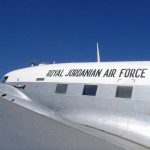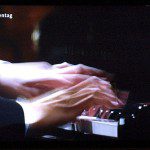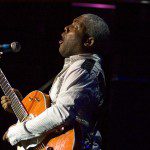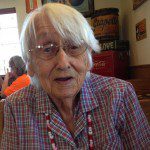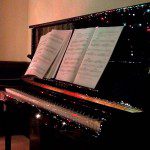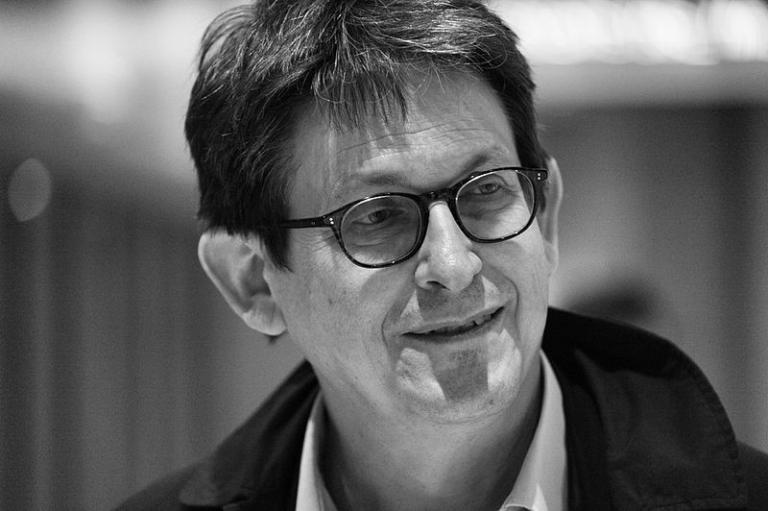
I love the piano.
I mean, I really love the piano.
The fact that I’ve taken it up late in life and have no ambitions about it — and I mean absolutely no ambitions about it — is part of the reason why I love it.
My elderly mother is constantly telling me how much she regrets that she and my father didn’t give me piano lessons when I was a child. “You could have been someone really great, a concert pianist,” she tells me.
Her short term memory is gone, so she repeats this refrain often. Each time she says it, I tell her that I have no regrets about the fact that I’m taking up piano now, and not earlier.
I love it.
Now.
It makes me happy.
Now.
And if there’s one small thing I’ve learned in life, it’s that the best time to be happy is always — you guessed it — Now.
My newfound love of the piano is without a doubt the reason why I downloaded, Play It Again, an Amateur Against the Impossible onto my Kindle. It’s the first-person story of British journalist Alan Rusbridger’s attempt to learn Chopin’s Ballade No 1 in G Minor.
The Ballade, as Mr Rusbridger calls it, is something of a Mount Everest among pianists. Playing it is usually considered the province of the best of the best, the professionals, and not the amateurs among us.
While Mr Rusbridger is an accomplished and enthusiastic musician, he is not by any stretch a professional pianist. His day job is at the British newspaper, The Guardian, where he’s the editor. That’s a big job at any time, but the year that he chose to take on the Ballade was also the year of Wikileaks and the story about a powerful British newspaper bugging cell phones to get stories. These stories were both broken by The Guardian, and neither of them was received easily by the world at large.
Mr Rusbridger had to be determined to find 20 minutes each morning for piano practice. While that night be enough time for a child to learn this week’s lesson, it is not in the universe of the amount of time a pianist needs to devote to master something like the Ballade.
He took lessons from three extraordinary teachers and interviewed experts in related fields during the course of his journey with the Ballade. He also engaged in lots of social music playing with friends.
After a year and a half, he successfully performed the Ballade for a group of friends, which, for him, was mission accomplished.
The important thing for me is that he never, at any time, worked toward a professional performance. He had a goal, but the journey was just as important as the final outcome.
This is what piano is to me. It’s about the music, yes, but in a personal, entirely selfish way. Of all the things I do, the piano stands alone among as the one thing that I do entirely for myself. I am an amateur and I have a determination to never be anything else.
The joy of it all is that it’s not about being a professional musician. It’s not about being a musician at all. It is, simply, about the pleasure, the incredible, totally absorbing and absolutely healing to the depths, pleasure of me and the piano and the music that is in both of us.
I identified with this book on many levels. Mr Rusbridger works in a public profession that is competitive to the point of combativeness. His tools are words that change people’s lives. He is constantly on call, always under the gun, never really “off” from his job.
Ask any elected official and they’ll tell you that this sounds a lot like what they do.
I always wanted to play the piano, but I never did. It was a vague longing with no direction. It might have stayed like that except a friend from my church told me she had a friend who wanted “to get rid of” a piano. I jumped at the chance to get it, and the rest is a love story.
It turns out that the piano and I were star-crossed lovers, or at least we were on my part. I sit down at the piano and the world falls away. When I first touched those keys, it was if a long-slumbering part of my brain woke up, kicked it’s heels and started doing fist pumps.
Mr Rusbridger talks a lot about his problems remembering the score. I have a somewhat analogous disability. I cannot, for the life of me remember notes. After I’ve plunked through a new piece of music the first time, and I look back at it the next day, I remember the sound. I hear the note when I look at it on paper.
I’ve had a hard time describing this to my teacher, but here’s what it’s like. I look at a note on the page for D, and instead of thinking D, I hear the note itself. It’s weird and it makes what people call method books almost painful to me.
I pulled myself out of the method books and into real music within a couple of months. I’ve been working on one advanced piece of music for almost 8 months now, slowly learning my way through it. First, the fingering, then the hands, then, ever so slowly, the hands together, and then, finally, the pedals. The whole time, I’m searching for the music in the notes, the story it’s telling me.
It’s a slow process, but it is so much fun. Let me repeat that: It. Is. Fun.
If you take a good piece of music apart, you will see quite quickly how it moves from one key to the next, how the chords come apart and combine, how the sounds repeat but do it differently, how they build and then fall, how it speaks. That’s the fun of it; finding the story in the music, the voice in it that uses these sounds to create a world of its own.
Mr Rusbridger studied music as a child, went through the (to me) mechanical process of graded learning. He’s modest about his abilities, but it is just modesty. I gather from reading the book that he is actually a very good amateur pianist. Which is to say that he may actually be a better pianist than the homogenized and rather dead predictability of much professional pianism I’ve heard in recordings.
We are veering toward a computer-like perfection in classical music, which is to say, we are taking the life out of it. Mr Rusbridger discusses this in some depth in his book. He theorizes that it’s the power of our recording studios to eliminate the flaws in performance that leads to this.
We are doing to music what Photoshop is doing to the human form: Replacing it with a plasticized shape that is a caricature of the beautifully flawed reality of life.
Real music, played by real people has flaws. But it also has voice and power and tells stories that reach into people and bring their deep inner selves to the surface. People love music. They love to listen to it, to dance to it, to just let it wash over them and lift them up and away.
The value of amateurs such as Mr Rusbridger, and, yes, even me, is that we keep music alive. We lift it out of the recording studio and the sterility of computer programs that eliminate flaws and place it squarely back into the human.
Mr Rusbridger makes an excellent case for this, and I will take it one step further. Without amateurs, music dies. This is true partly because the audiences for professionals is made up of amateurs. It is also true because the flaws, fun and good times of amateur playing is where the life of music lives. Music is of the human soul, not the human-made equipment that wipes performances clean of flaws and packages them to sell.
My family was a musical family. I never thought about this, took it for granted, until I got my hands on that first piano. We would get together and after a big meal with fried chicken, baked beans, potato salad, homemade ice cream and watermelon, everyone would get out their fiddles and guitars.
Nobody could read music. They just played. The standard line when someone asked “Do you know …” was “Hum it.” If you could hum it, they could play it. First one, then the other would take it up, and they’d be off.
That’s the ultimate amateurism; one step removed from playing a bottle and keeping time on a washboard with a spoon. It was also, I realize now, beautiful.
Not the music so much, although if I remember correctly, it wasn’t all that bad. The beauty was in the family, the love, the life of it. Music is a human invention.
Music is emotion, language, math, symbolism, and our driving need for beauty all rolled up into a profound self-expression. It links us, one to another on a profound and visceral level.
Without music, would people die? Would we become like neglected children who fail to thrive? Would our eyes hollow out into deep pits of despair and our bodies grow frail and and wraithlike if we lost our ability to sing?
I think we would. I really think we would.
Because music is not about perfection or performance or making money. Music is, and always has been, our soul’s voice with wings.



